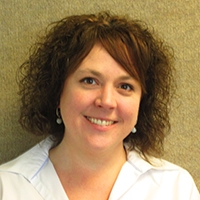In a recent blog, we took a look at medications that increase fall risk—and the role long-term care pharmacy providers play in mitigating that risk. Let’s take a deeper dive into that topic and look at why effective medication management is essential. Medication management plays a vital role in improving resident outcomes and reducing resident fall risk. In the long-term care setting, the incidence of falls is nearly 50 percent. As residents age, this number rises. The incidence rate of falls (number of falls per 100 person years) increases from 47 in older adults ages 70–74 to 121 in those age 80. It has been well documented that medication can contribute to falls, especially in older adults. Seventy-two percent of people ages 55 and older use at least one medication, with 20.3 percent of that group using four or more medications. The high rate of medication usage in this population has led to a rise in adverse drug reactions (ADRs), a particular concern for post-acute care pharmacy. Two-thirds of all ADR-related hospitalizations occur in those age 60 and older. ADR-related hospitalizations account for approximately 3.4–16.6 percent of all hospital admissions in older people. Unfortunately, the exact number of falls caused by medication is not known because falls are not officially recognized as an ADR. With a growing aging population and increased prescribing of medication to older adults, proper medication management and education is vital. Pharmacists are uniquely equipped to lend their medication expertise to improve resident outcomes. Each day, 74 older adults die from fall-related injuries, which equates to 27,000 deaths per year. Most startling is that one out of five falls result in a serious outcome such as a fracture or a head injury. In fact, more than 95 percent of hip fractures are caused by falls. These statistics help paint a picture of how serious falls are, especially in older adults, but don’t show us how to prevent them. The utilization of pharmacists and LTC pharmacy services can have a profound outcome on a resident’s health and help to reduce resident falls.
ADDRESS
105 Gamma Drive, Suite 100
Pittsburgh, PA 15238
CALL
Phone: 866-824-MEDS
Fax: 412-968-5800
